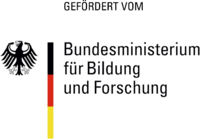Working Group C (WG C)
Concepts of Nature and Future: Africa and beyond
This summer (2014) with our current Working Group we seek to question approaches, presumptions and models of Western knowledge on nature, ecology and environment. Currently the perspective of natural sciences is dominating in such topics. In concepts and models time is treated as an external parameter allowing future events to be predictable in principle. Evaluating and protecting environments in the past and future has been based on the nature-culture dichotomy, despite repeated and substantial criticisms.
This dichotomy is ingrained in the academic division of labor between disciplines studying nature or culture. However, at times when for instance climate politics and biodiversity politics have become prominent in the literature, arts and media, this dualism has proven to be incapable of adequately guiding related research questions about past and future.
We are interested in human–environment relations; these may either appear as a continuum, or as a dichotomy of nature–culture, as in (scientific) Western thinking. Within the group we take into focus different stakeholders and their respective notions and narratives of human- environment relations. We are interested in different epistemologies and cosmologies in the sense of Descola (2005 Beyond Nature and Culture) with regard to past, present and future human-environment relations.
We follow three strands of discussion. The first deals with the dominant concepts of nature and possible nature/culture-relations in colonial and postcolonial Africa and beyond; beside the prominent dualisms these have been framed as an appropriation of nature. The second strand is elucidating the ways how nature is preserved, protected, used, and appropriated within global-local economic and cultural interconnections.
The Working Group is facilitated by one of the Academy’s second Sub‐Project, titled "Visions of Nature: Concepts of Appropriating and Conserving Nature in Africa". The Working Group will meet on a regular basis between 8th of May and 10th of July, 2014 (Programme). The sessions and workshops of the Working Group will bring together a number of specially‐invited Guest Fellows from a large variety of disciplines, countries, and institutions, and the researchers of the Bayreuth Academy itself.



